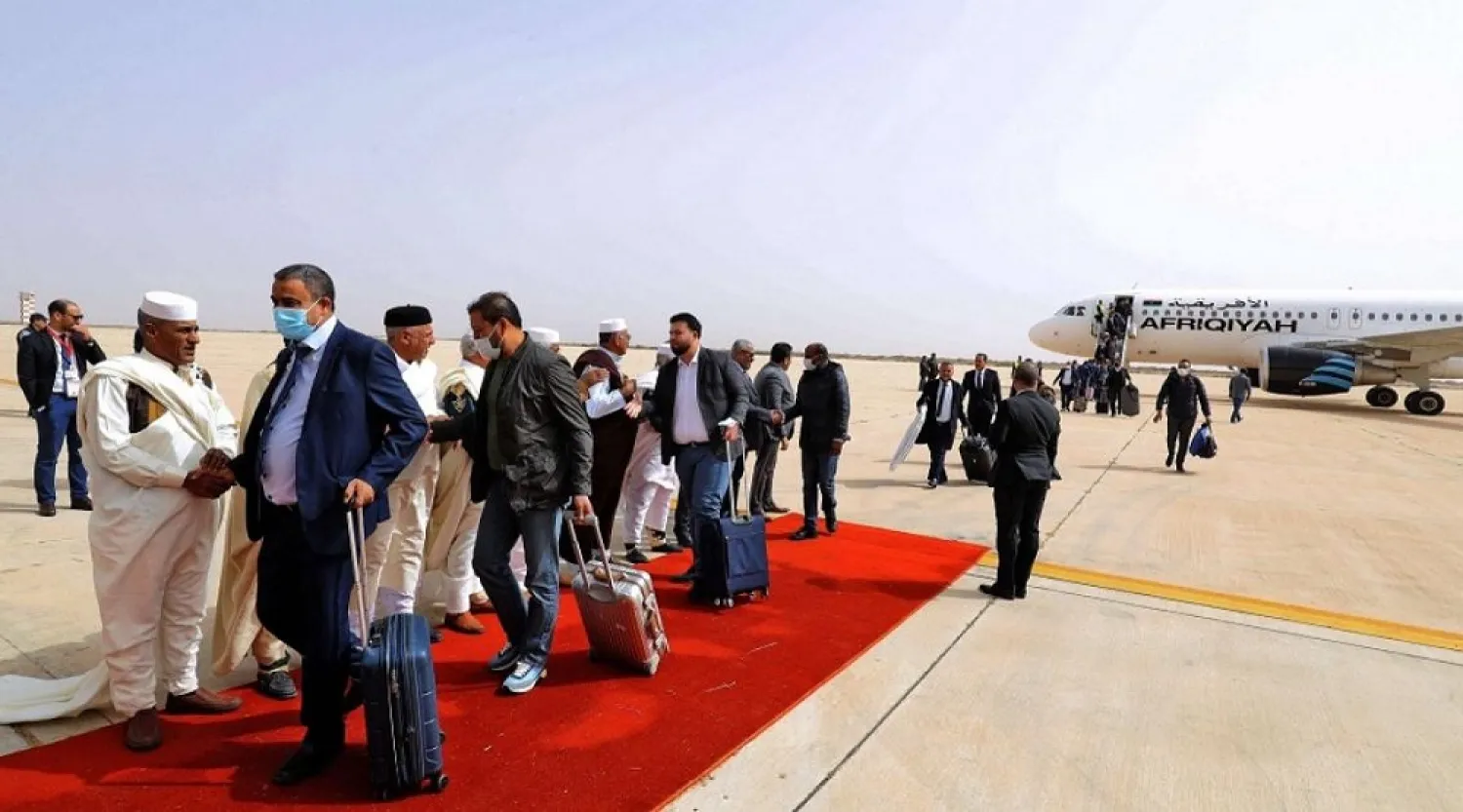Libyan lawmakers began consultations Monday aimed at confirming a newly appointed government that would lead the war-wrecked country through elections by the end of the year. The UN called the session “historic.”
More than 130 members of the House of Representatives met in the coastal city of Sirte after Prime Minister-designate Abdulhamid Dbeibeh last week presented his proposed Cabinet to Aguila Saleh, speaker of the east-based parliament.
“We are looking forward to overcome many obstacles” to achieve parliamentary and presidential elections on Dec. 24, Saleh told lawmakers in his opening remarks.
“The crisis today is a crisis of conflict and war, a crisis of confidence and participation, a crisis of acceptance and support that requires realism and comprehension,” Dbeibeh told lawmakers ahead of the meeting.
Dbeibeh’s proposed Cabinet includes 33 ministers and two deputy prime ministers who he said are representative of Libya’s different geographic areas and social segments.
“These are critical times and we are taking into consideration that the Cabinet must genuinely achieve national unity and seek consensus and reconciliation,” he said.
Dbeibeh said if parliament fails to confirm his Cabinet, it would hamper the political roadmap and prolong Libya’s years-long crisis.
Later on Monday, lawmakers finished their deliberations for the day and were secluded until convening again Tuesday morning when Dbeibeh is set to address the parliament.
The parliament has till March 24 to confirm the newly appointed government, which would replace two rival administrations, one in the east and one in the west.
The UN mission in Libya, or UNSMIL, called the session “historic,” urging lawmakers not to miss “this opportunity to open a new chapter for Libya.”
“This session is an important step towards meeting the long-standing aspiration of the Libyan people to reunify the country and all state institutions,” UNSMIL said.
The interim government has been facing allegations of corruption at meetings of a UN-picked 75-member political dialogue forum.
Dbeibeh earlier this month refuted the allegations and called for the UN to reveal the conclusions of its investigations.
Jalel Harchaoui, a Libyan expert at the Clingendael Netherlands Institute of International Relations, said the debate over the corruption allegations was “highly political” and aimed at weakening Dbeibeh by placing doubt on his legitimacy.
“This revived debate over the corruption allegations, although not proven, is hurting precisely this: his legitimacy. It may also delay the entire process and create a fog of confusion that persists for months," he said.









